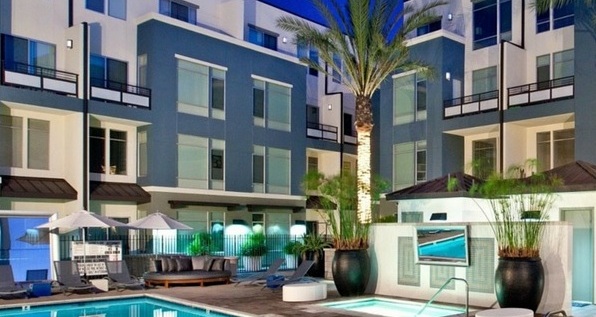Condo vs. Apartment Living
Like everything in life, there are pros and cons to living anywhere. Before you sign on the dotted line of a purchase or a long-term lease contract, it’s important to weigh these important factors.
Short Glossary of terms
 |
A residential condominium in Hungary is like a hybrid between an apartment and a semi-detached house. While many residential condos are designed to look like apartments or are built in high rise city buildings, more and more builders are designing them where they can be referred to as townhouses, or low-rise condos. Townhouses are usually semi-attached to one or more houses and can run the gamut from duplexes and triplexes to communities with hundreds of homes. |
In Hungary more than 80% of the properties for rent are in the ownership of private individuals and not managed or being let by corporations or property managers. The main difference comes when the mostly older or classical buildings that we simply call condominiums are not providing extra facilities that residential parks or residential condominiums do.
Pros of a Low-rise Residential Condominium
1. Security. Many condos offer gated or locked entries, doormen, or even security professionals for residents. If you live alone, or security is a concern for you, this can be a major perk. In addition, you’re living in close proximity with many other people; in an emergency, you’ll have plenty of people to turn to for help.
2. Amenities. Want a pool? A fitness center? Wednesday game nights at the community clubhouse? Many condo communities offer residents amenities that are out of reach for the average homeowner.
|
3. Maintenance. One of the biggest benefits to living in a condo is that other people do the maintenance for you. They cut the grass and maintain the grounds, they fix the roof, and there are plenty of workers on hand for when your furnace quits. If you’re a first time homeowner, in poor health, busy with work, like to travel, or you just don’t want to deal with all that work, this is a major benefit to living in a condo. |
|
4. Affordability. Condominiums are often priced lower than detached family homes.
Cons of a Low-rise Residential Condominium
1. Homeowners Association Fees. As you might imagine, that pool, fitness center, security system, and maintenance crew all cost money. And, that money is paid by you. When you live in a condo, you essentially become a business partner in that community. You pay a monthly fee each month which goes towards the upkeep of the property. How much will you have to pay each month? HOA fees vary widely, depending on the location, size, and quality of your community, but plan on spending at least €200 a month in common fees. It’s not cheap.
2. Lack of Privacy. There is also less privacy than with a detached single-family home. A condo is essentially like an apartment that you own and you get all the “perks” of apartment living too; this includes neighbors on the other side of the wall, and neighbors going up and down the hall or grounds at all hours of the day and night. Communal living is not always desirable for some people who cannot bare the noise level generated by living in close proximity to others. In a lower rise, you typically have more control over the amount of interaction with your neighbors. Another big concern is about parking for the owners and for their guests. However, many condominiums are being designed with their own garages and have common parking areas available for guests.
3. Living by the Rules. Living in a condo means you have to live by the management’s rules. For instance, say you want to install green energy technology like a solar panel on the roof to save energy at home. Instead of just getting started, you have to ask the condo association if it’s ok. If they say no, you’re out of luck. There are many rules for living in a condo; for some people, this can be stifling.
Pros of regular Condominium living
1. Amenities. living in an apartment complex usually brings access to a large array of amenities that you might not get after buying a home. This potentially includes things like a common room, swimming pool, communal barbeques, a gym, covered parking, and a security system.
2. Perfect for living alone. For those who plan on living alone for the foreseeable future, the smaller space and simplicity of an apartment is ideal for those who want less space and smaller bills.
3. Bills and fees. apartment living usually costs you less in terms of things such as common charge, heating, cooling, water and electricity.
Cons of regular Condominium living
1. No maintenance. with nearly all apartments, maintenance is covered and taken care of by the landlord or the body corporate, it might take longer to take care of that leaky pipe finally splits.
2. Smaller living space. The first and foremost disadvantage of apartments is that they′re generally smaller than the average house. While this means you′ve got less space to clean, that′s only a small consolation for less living space.
3. Privacy and noise. Due to the crowded nature of apartment buildings, the privacy afforded by apartment living is less than that of living in a house. You might overhear someone speaking (singing/shouting…) in the apartment next to yours, or they might hear you. This means that suffering from excessive noise from other tenants is entirely possible.
4. Parking. Parking spaces can be at a premium in an apartment block, particularly if you don′t have allocated parking.
.jpg)
